- About Us
- Columns
- Letters
- Cartoons
- The Udder Limits
- Archives
- Ezy Reading Archive
- 2024 Cud Archives
- 2023 Cud Archives
- 2022 Cud Archives
- 2021 Cud Archives
- 2020 Cud Archives
- 2015-2019
- 2010-2014
- 2004-2009
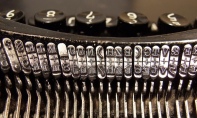 |
Cud Flashes In The Pan |
This month’s theme: The Seven Wonders of the Solar System
By David M. Fitzpatrick
The Statue of Zeus at Olympia and the Temple of Artemis at Ephesus were destroyed by fire. Earthquakes destroyed the Hanging Gardens of Babylon, the Mausoleum at Halicarnassus, the Colossus of Rhodes, and the Lighthouse at Alexandria. Only the Great Pyramid at Giza remains of the original Seven Wonders of the Ancient World. Many such lists have been created since then, celebrating the natural wonders, modern wonders, wonders of various countries, and so on. In 1999, an article in Astronomy magazine listed the Seven Wonders of the Solar System. They truly are wondrous, and serve as this month’s theme.
“Icy Prison”
Wonder #1: Enceladus (Moon of Saturn)
By David M. Fitzpatrick
Geoffrey weighed two and a half pounds. It was pure heaven when he’d glide across Enceladus’ icy surface on his skates and leap into the air, over a crater or crack in the ice, and sail superhumanly high above the surface.
He glided across the ice, watching the cryovolcanoes erupting on the horizon. Beyond their billowing plumes of water and ice, Saturn loomed huge in the sky. Light from the distant Sun gleamed off the plane of the planet’s rings.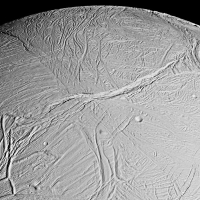
It was beauty, awe, sensory overload, otherworldly majesty, and absolute solitude in this place. He loved it all, and he hated it, too. It would all be good if he were just visiting, but he was in self-exile forever. After a year, even the marvels of the icy moon had worn thin. The solitude sure had.
He felt the rumble before he saw it. He spun about on the ice, looking back towards the dome of his home, and saw the gleaming metal of the ship as it approached low in the sky, lowering slowly to the surface. He wasn’t expecting a supply ship for another year.
Geoffrey skated quickly back, and the ship had completed landing when he arrived. He’d welcome the crew, serve them dinner, perhaps play some cards and invite them to stay the night if they could. But he’d feel guilty for the company, and be glad when they finally left. He needed his icy solitude. He deserved it.
But when the hatch opened, he knew the feminine curves of the silhouetted pilot the moment he saw them.
***
They sat together in the main dome. He didn’t know what to say.
“No more,” she said. “Pack your things and return to Earth with me.”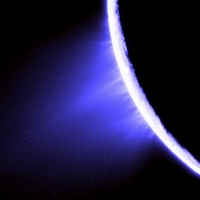
“I can’t,” he said. “You’re not Cassie. Not the original, anyway.”
She sighed. “I know you’re atoning for what you did. But I’m here, alive. Just as I have been since the day after I died.”
“Her death was my fault. I should have saved her.”
“It was my fault that I slipped. It was freezing Arctic water. If you’d jumped in, we’d both have died. You threw a line, a life ring—you did your best.” She leaned back on the sofa, broadening her arms as if presenting herself. “Besides, it doesn’t matter. This is why we keep DNA and do regular brain backups—so we can clone ourselves and restore our minds in the event of death. Now, I’m Cassie—as real as the one who died. And you can’t stay on Enceladus forever—and shouldn’t when I’ve come for you.”
“I have to suffer until I die,” he said. “That’s the only way I can atone for what happened.”
She sighed. “You know, it hasn’t been easy for me. I know I’m the real Cassie. And I still love you as much as I ever did. And I’m not leaving here. You’ll either come back with me and be with me—or I’ll stay here with you forever.”
“Sorry you feel that way,” he said, and then he acted.
***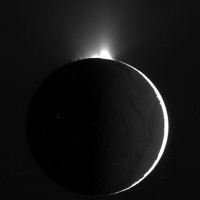
He skated across Enceladus. The fake Cassie felt like just a couple of pounds. She wasn’t wearing her space helmet, and the blood from the impact wound was frozen on her head and face. He glided silently, pulling her behind him.
The cryovolcano loomed before him, spewing water and ice into the air. He’d dump her body in there, so it would find the same ice-cold, watery grave as the original Cassie. Then he’d return to his exile.
It wasn’t murder. It wasn’t really her.
He began to wonder about her words. Maybe he’d atoned long enough.
No. He knew in his heart that, somehow, he still deserved it.
“Seeing Spots”
Wonder #2: The Great Red Spot (of Jupiter)
By David M. Fitzpatrick
“There it is,” the chief scientist said. “The Great Red Spot.”
Everyone oohed and ahhed.
The science team crowded about the giant window in the observation bay, looking at Jupiter. The gas giant filled the entire view; the Spot loomed huge in the window, surrounded by Jupiter’s characteristic orange and brown rippled bands. The Spot’s red was brilliant in contrast.
“This massive storm is a cyclone spinning counterclockwise,” the chief said. “Its size and shape has shifted slightly over the centuries, but the Great Red Spot will likely remain mostly as it is for a very long time.”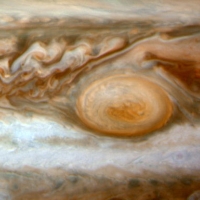
“Look!” cried one of the junior scientists.
Everybody sucked in their breaths.
“Great Scott!” the chief breathed.
The Great Red Spot had abruptly become the Great Blue Spot. Smurf blue.
“How can this happen?” someone asked.
“Obviously, some atmospheric phenomenon is interfering with the wavelength of light,” the chief tried, but murmurs told him they weren’t buying it.
“Nothing else has changed color,” someone said. “Just the spot.”
“It’s changed again!” another yelled.
It was now the Great Yellow Spot. Banana yellow.
“What is happening here?” the chief hollered.
And as they stared in disbelief, it became the Great Purple Spot. Just-got-punched-in-the-eye purple.
“As inexplicable as this seems,” said the chief, his voice shaking, “science tells us there is an explanation we haven’t yet discerned. I’m sure there’s an amusingly simple explanation to the illusion of changing color—”
“It’s shrinking!” someone screamed.
There was a clamor of confused and excited voices as the swirling storm shrink steadily from tens of thousands of kilometers across, like a rapidly deflating balloon, until it was just a bright green dot—having changed color as it shrunk. Mint green.
Nobody spoke. And as they stared, the Tiny Green Spot began to reinflate until it was its normal size. But it kept growing, ever larger, as it shifted to swirling bands of a rainbow of colors. It was thrice its usual size… and then, slowly and gracefully, it shrank once again, returning to the original Great Spot it always had been.
Nobody spoke for a long minute, waiting to see if it would change again. Finally, the chief scientist spoke.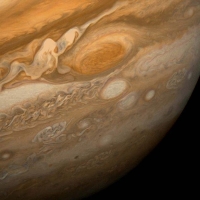
“We cannot yet explain this,” he said slowly. “But we’ll research this until we can. That’s what science is all about. And our greatest evolutionary advantage is our intelligence. We’ll use our brains to solve this exciting puzzle.”
***
Two Jovian energy beings hovered above the dense, rocky core at the center of the gas giant.
“That was amusing,” said Dksxlyrt.
“I’m sure they’re all self-important over their intellectual prowess in figuring out what happened,” said Lwrtsvwt.
“Let’s put up an ‘Eat at Joe’s’ sign in blinking letters across the entire hemisphere,” said Dksxlyrt.
“Not so fast,” said Lwrtsvwt. “Let’s not be too obvious. Let’s start with tossing in a few extra moons and work up from there.”
“Eye of the Beholder”
Wonder #3: The Asteroid Belt
By David M. Fitzpatrick
Everyone heard “asteroid belt” and assumed it was like something in a sci-fi movie, with a zillion rocks in close quarters constantly smashing into each other. And few saw the beauty in it.
“How can the leftovers from the early solar system be beautiful?” Jim’s son Mark asked. Mark was unimpressed by boring things like dust and rocks. He preferred the popular things like the rings of Saturn or Jupiter’s Great Red Spot.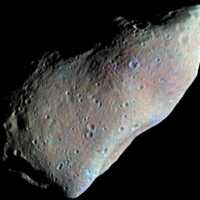
“They represent the building blocks of the solar system,” Jim said. He wasn’t a scientist. He was just super-interested in everything out there, and always held a special fondness for the asteroid belt.
“But you could spend your life flying a spaceship randomly through the asteroid belt and never find an asteroid,” Mark said. He was an accountant, and not easily inspired.
“True,” Jim conceded. “In fact, the four largest asteroids account for about half the total mass of the entire asteroid belt. And the entire mass of the asteroid belt wouldn’t even equal the mass of the Moon.”
“Uninteresting,” Mark said. “Boring. Ugly.”
Jim knew he’d never convince his son otherwise, or anyone else who thought like Mark. He only wished others could see the beauty he saw.
Then he hit on an idea. He knew exactly how he’d show the wonder and beauty of the asteroid belt to others.
***
He bought a spaceship with a decent space-fold drive with his retirement nest egg and spent a year exploring the asteroid belt, collecting many samples to bring home.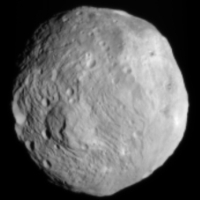
His project was a hit. Even Mark was all smiles whenever Jim talked about it, and whenever Jim showed his samples to others.
“This green gem is olivine, from Vesta,” Jim would explain as he showed it off. “The mount is made from Vestan nickel. This glass globe is filled with water from Ceres, and this is baked clay from Ceres. And these are pyroxene chondrules from Pallas, and here’s a polished carbonaceous chondrite from Hygiea…”
He’d show gems and precious metals from various parts of the asteroid belt, and even those boring things like brown rock and gray iron. They never failed to impress. Of course, Jim always presented his collection so that he could explain the various components—where they came from, how the related to other solar-system bodies, and how they equated to Earth.
Most importantly, it was the wonderful metaphoric way he presented everything: All his samples from the asteroid belt were mounted on a synthetic strap complete with a clasp made from asteroid iron. It was an easy conversation-starter, for he wore it everywhere, and it held up his pants.
It was truly his Asteroid Belt.
And everyone declared it was beautiful.
“Why Are We Walking on the Sun?”
Wonder #4: The Surface of the Sun
By David M. Fitzpatrick
(First appeared on The Cud in July 2012)
“What happens if the dome breaks?”
William looked at his teenage son and smiled. “It won’t. The Sun would have to go nova for that to happen.”
They stood at the edge of the platform, where the clear dome joined the gray base. Outside, the photosphere of the Sun on which the platform floated was visible. The light was brilliant and beautiful, like nothing the father had ever imagined. It was cool and comfortable in the safety of the dome.
“Why aren’t we blinded, being this close?” Ben asked.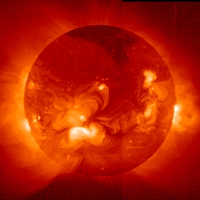
“The dome protects us. Dims the light, and blocks the heat and radiation. Otherwise, we’d burn up in an instant.”
“How hot is it?” Ben was staring at the photosphere with less a sense of awe and more one of curiosity. William was surprised at this; Ben wasn’t much into the sciences, always writing poetry. William couldn’t imagine anything more poetry-inspiring than sitting on the surface of the Sun.
“Nearly six thousand degrees kelvin,” the father said. “But that’s nothing. The core is nearly sixteen million. And above us, it ranges from one to twenty million degrees. The dome keeps us safe with a dimensional device—the same thing that holds us in place against gravity nearly twenty-eight times that of Earth. Isn’t that amazing?”
Ben chewed on his lip as he stared at the flaring fires outside the dome. Hints of facial hair, somewhere between peach fuzz and beard material, threatened to grow. He didn’t seem amazed. Any poet would be. Hell, any teenage boy would be. This confused William.
They stood for a few minutes, just watching the spectacular show outside in the comfort of the cool dome. Presently, Ben said, “Why are we here? Humans, I mean. Why go?”
“Well, you know—my job. Studying the Sun. There are always new things to learn.”
“It sounds like we know everything already, if they can build human habitats that float on the Sun. So what’s the real reason to go live on the Sun?”
“I suppose… because we can. Like when we set up colonies to terraform the Moon, Mars, Venus, Titan. We turned those worlds into Earth-like, inhabitable places. We created places for humans to live and grow and expand.”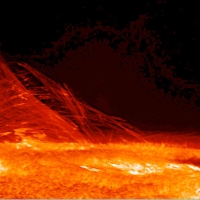
“Then why the Sun? We can’t terraform it. And we can survive here, but we can’t live here. We can’t go outside and run through green fields and smell life everywhere. We can’t lie under a blue sky and watch clouds overhead and feel cool breezes on our skin. We can’t swim in rushing rivers or feel the cold of a salt ocean. We can’t watch animals in distant jungles or fish in babbling brooks, eat popcorn at a carnival or candy at the movies, enjoy a picnic lunch on a beach or steaks in a fine restaurant. Here, there are just a few people in a dome who can only dream about everything else.”
William was stunned. “Don’t you think what you see here is… extraordinary?”
“For a short while. But ultimately it’s just the same old thing forever.”
William didn’t know what to say.
Soon, Ben said, “I’m going back to our apartment. I feel like writing poems about Earth and Mars and Venus and Titan. Lots of poems.
Ben watched him go, then turned and faced the blazing photosphere.
He tried like hell to be amazed by the sight beyond the dome, but he found his sense of awe waning quickly.
And even though he knew, intellectually, the dome absolutely protected them, he couldn’t help but feel uncomfortably hot.
“Foresight”
Wonder #5: The Oceans of Earth
By David M. Fitzpatrick
“Let me get this straight. The planet has almost no water, but used to have vast oceans. There’s one natural satellite. And there’s a ring system composed entirely of water ice.”
“That’s right—an artificial ring system.”
“Artificial?”
“They created it. We believe they’d severely damaged the planet through ozone-layer depletion that likely resulted in the melting of polar ice caps, threatening to submerge much of their world.”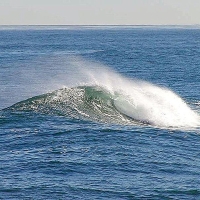
“So they had plenty of water.”
“Oh, lots. But the melting caps would have drowned the continents.”
“So let me guess: Somehow, they transported their oceans into orbit to create this ring system.”
“Basically, yes. We think they intended to transport some of the water into orbit, but something malfunctioned and they accidentally transported everything.”
“And this resulted in their extinction?”
“The extinction of nearly every living thing on the planet, yes. Microscopic life still exists, and some primitive plants and animals in the remaining wet areas, but that’s about it.”
“Amazing.”
“That they destroyed their world and all life on it?”
“That they did so much damage in the first place that they had to try this last-ditch effort at all.”
“Agreed. And imagine this: After engineering an impressive system to transport their water into orbit, and it malfunctioned, they lost it all—and had to remain here, watching a beautiful water-ice ring around their world, utterly helpless to get it back as they died off.”
“Absolutely tragic. Especially since it’s so easy to reverse with our technology.”
“Indeed. So—shall we undo it? Return the water to the world below?”
“Well, the ring system is beautiful, but I suppose we owe it to the planet to soak it again. Let’s do it.”
***
“Incredible. It was such a dead, dry world when we found it. Now—look at it.”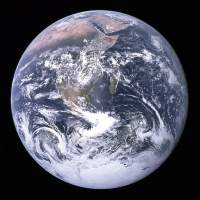
“I know! The oceans are simply beautiful. The world is so blue. And look—clouds are forming everywhere. I think we’ve really done something great here.”
“Better still, sir—we’ve located genetics banks on the surface, where they had catalogued millions of life forms. We can repopulate this world just as it had been before everything died—plants, insects, animals. And we can repopulate it with the bipeds who ruled the world. Shall we proceed?”
“Slow down. Repopulate it with every life form stored in the genetics banks—except for those bipeds.”
“Sir?”
“They did enough damage the first time around. I can’t see any reason to give the entire species a second chance.”
“Fair enough. We’ll let evolution try again on its own.”
“Those oceans… they certainly are beautiful, aren’t they?”
“I can’t say I’ve ever seen a world quite this amazing. And they look stunning from the surface shores, I can tell you.”
“How very sad. Those bipeds must have not appreciated the incredible wonders they had right here.”
“Apparently not.”
“Let’s hope whatever evolves to rule the planet next has a bit more foresight.”
“One More Ring”
Wonder #6: The Rings of Saturn
By David M. Fitzpatrick
“It’s beautiful,” Jenna said.
Saturn loomed gigantic before them as their ship approached. Olivia was in the pilot’s seat, as usual. She’d taken Jenna all over the solar system.
“Wait ‘til you see the rings,” Olivia said.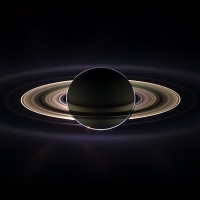
“I can see them just fine,” Jenna said, astonished eyes wide.
“Not like this.”
Olivia hit the thrusters and the ship burst forward at incredible speeds. The inertia dampeners ensured the women weren’t forced backward; it was smooth as silk. But the stunning rings of Saturn grew quickly large in their view as they approached. Olivia guided the ship to several kilometers above the surface of the rings, at the altitude where they could see their colorful beauty, and flew parallel to them, almost as if skimming across the surface.
“Wow,” Jenna breathed, utterly awed. “It’s so beautiful, Liv.”
“More beautiful than Mars?” Olivia asked, smiling. “Or the Sun on the edge of Mercury’s horizon?”
“More beautiful even than Jupiter in low orbit, or the comet we landed on.”
“More beautiful than me?”
Jenna grinned at her. Olivia was as perfect as a woman could get, and the opposite image of herself: raven-haired where Jenna was a blonde, dark-eyed to her icy blues, chocolate-skinned to her alabaster. “No, sweetie. Nothing is as beautiful as you.”
Olivia switched to autopilot and spun her captain’s chair about. “How about this?”
She produced the box and flipped it open. Jenna sucked in her breath when she saw the golden band and the glimmering diamond.
“Liv!” she cried.
“Just say you’ll marry me,” Olivia said. “That would be beautiful to me.”
“Yes!” Jenna cried. “Of course!”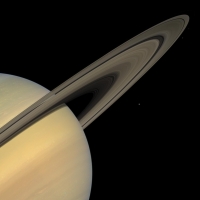
The women leaped up and into each other’s arms. They cried tears of happiness, and when they separated, Olivia slid the ring on Jenna’s finger.
“A beautiful ring while we sail across beautiful rings,” Olivia said. “I have an official at an orbiting station here waiting for us. He’ll marry us today. Then we can go home to Earth.”
Jenna smiled, albeit halfheartedly. “I just wish we could get married there.”
“We can still have a celebration,” Olivia said. “But look at the good side: Our marriage is legal because we did it more than two billion kilometers from Earth, just like the laws specify.”
“I just don’t understand what the difference is,” Jenna said. “It shouldn’t matter where we marry.”
“Not everyone has the chance to go two billion kilometers from Earth to do it,” Olivia said. “I guess they’re hoping most won’t try.”
Jenna hugged her again. “I guess they don’t understand true love, then.”
“The Insanity of Worship”
Wonder #7: Olympus Mons (mountain on Mars)
By David M. Fitzpatrick
The pantheon stood atop the Martian mountain.
“It doesn’t look much like a mountain,” said Apollo.
“It’s because it’s so big,” Zeus explained. “The slope goes beyond the curvature of Mars.”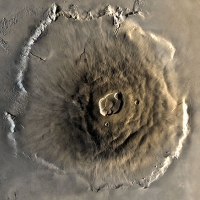
They surveyed the red landscape beneath the red sky.
“It’s a bit cold,” Artemis said. “Although it does have two moons. That would suit me.”
“Too far from the Sun for my liking,” Apollo said.
“There aren’t any oceans,” Poseidon grumbled.
“We’ll terraform—seed the world with life,” said Zeus. “Return in a few billion years and see how things are going. With any luck, we’ll have new intelligent beings to worship us.”
“I’d rather be back on Earth,” Hera said.
“We all would. But you know the rules: Once they disbelieve in us, we have to leave. And they’ve been disbelieving for some time.”
“Disbelief is supposed to be a sign of mental and cultural evolution,” Hades said. “They’ve been disbelieving in the other pantheons—Odin and Thor pulled their people out years ago. Yet they still believe—in false gods. Mythical creator deities who live in the sky. Gods who never put in actual appearances. Ridiculous.”
“If they can believe in such fairy tales,” Hera said, “then we should be able to stay.”
“The rules say otherwise,” Zeus said.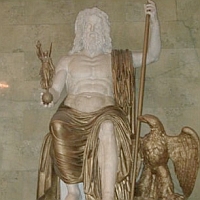
The sun was setting, a red-tinged star burning through the dusty atmosphere.
“They’ll keep believing in false deities,” Zeus said, “and stunt their own advancement. One day, they’ll destroy themselves. By then, Mars will be ready for us, and we’ll make this our new Mount Olympus. Or perhaps Earth will once again be ready for us, and we’ll rule again.”
They watched the sun set. Darkness came over the Red Planet.
“Foolish humans,” Apollo said.
“Yes, they always have been,” Zeus said. “That’s why we’ve been able to rule them. The irony is that they’ve gone into new realms of foolishness—yet we must leave.”
“I’ll bet they never even get off their planet,” Artemis said.
“I bet you’re right.”
They flew away into other dimensions, making their terraforming plans.
David M. Fitzpatrick is a fiction writer in Maine, USA. His many short stories have appeared in print magazines and anthologies around the world. He writes for a newspaper, writes fiction, edits anthologies, and teaches creative writing. Visit him at www.fitz42.net/writer to learn more.
